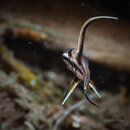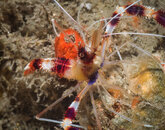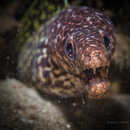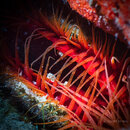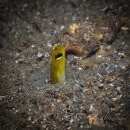Went to the bridge for diving Monday and Tuesday, went to LBTS Saturday and Sunday, LBTS post is here
LBTS. On Monday for 1300 high tide the park was crowded. On Tuesday for a 1400 high tide not so much. Sea temp was 81f on Monday with excellent vis in the 50ft range. Sea temp was 82f on Tuesday with 35ft of vis. For those wondering about the temperature rise, on April 23 I recorded 74f, and remember thinking when is the damn water going to ever heat up? Perusal of historical trends will confirm this time of year is when the sea temp rises rapidly.
Finally time to ditch the 5mm in favor of the 3mm. With the 3mm and a steel tank I should be able to get away with 6lbs of lead. With the 3mm and an aluminum tank I should be able to get away with 9lbs of lead. For those interested, I use mostly aluminum 63, or hp steel 80 at the bridge. Sometimes if it is going to be a shorter dive I will use aluminum 50, and if I haven't kept up with tank fills will use LP steel 85.
I would like to mention that Reef Environmental Education Foundation is started publishing a quarterly newsletter just for fish surveying. This is in addition to their monthly enews letter "Making it Count". I wrote an article for the new quarterly newsletter. For some here the article might seem familiar. That's because it is based on post I did here in scubaboard about the presence and location of Web Burrfish vs. Striped Burrfish. The article can be viewed here. Data Deep Dive
On Monday snorkeled the trail prior to diving. Fighting conchs are omnipresent at BHB. All one needs is to look around in the sand to find one. But on Monday there was a more normal aggregation on the snorkel trail. I counted 300+ in an area no bigger than 15ft by 15ft. I don't know if the aggregation was about food or sex, odds are it was one or the other. Did a REEF survey while snorkeling of 49 species in 55 minutes. Found a live Thrush Cowrie but did not have my camera. Exited the water and got scuba gear and camera as fast I could but did not relocate the Thrush Cowrie. For those not familiar the an image of the Thrush Cowrie can be seen here on inaturalist Thrush Cowrie. When I found the shell of one not to long ago I thought for sure it was a Pacific species that somebody had tossed off the fishing pier, because I had never observed one before. But it turns out to be endemic to south Florida. Always great to find a new species.
Ok so I won't bury the lead on the scuba observations, I managed to get on another Sea Spider Monday. It gets better though, I am pretty sure it is a different species than the Lentil Sea Spider I observed on Friday. The Lentil Sea Spider was small, but actually stood out very well against the Brown Bryozoan and Hydroids it was perched on, it had a well defined blue color, without any embellishment on the exoskeleton. The one observed on Monday was kind of fuzzy. A fish analogy might be a Longsnout Seahorse with no fleshy appendage, compared to a Lined Seahorse with lots of fleshly appendages. However I do not know what one would call a "fleshy appendage" on an exoskeleton. As a result of the better camouflage of the Monday species it made it difficult to get good images. Nevertheless see the image and video below.

Recall that in my last post I mentioned observing a King Helmet Shell last Friday that a prospective home buyer of a Giant Hermit Crab was in the midst of inspecting. I opined at the time that the aperture of the shell was not suitable to inhabitance by the said Giant Hermit Crab. One might find it analogous to buying a house where you can't fit through the front door. Yesterday about 100ft away from where I originally observed the Giant Hermit Crab home buyer, I observed the image below. It is the same shell, and I am guessing the same Giant Hermit Crab. So much for what estimation of what is good housing or not for Giant Hermit Crabs.

Below are other images of interesting denizens of Blue Heron Bridge. Respectively, Bumble Bee Shrimp, Common Marginella, and Touch Me Not Worm



LBTS. On Monday for 1300 high tide the park was crowded. On Tuesday for a 1400 high tide not so much. Sea temp was 81f on Monday with excellent vis in the 50ft range. Sea temp was 82f on Tuesday with 35ft of vis. For those wondering about the temperature rise, on April 23 I recorded 74f, and remember thinking when is the damn water going to ever heat up? Perusal of historical trends will confirm this time of year is when the sea temp rises rapidly.
Finally time to ditch the 5mm in favor of the 3mm. With the 3mm and a steel tank I should be able to get away with 6lbs of lead. With the 3mm and an aluminum tank I should be able to get away with 9lbs of lead. For those interested, I use mostly aluminum 63, or hp steel 80 at the bridge. Sometimes if it is going to be a shorter dive I will use aluminum 50, and if I haven't kept up with tank fills will use LP steel 85.
I would like to mention that Reef Environmental Education Foundation is started publishing a quarterly newsletter just for fish surveying. This is in addition to their monthly enews letter "Making it Count". I wrote an article for the new quarterly newsletter. For some here the article might seem familiar. That's because it is based on post I did here in scubaboard about the presence and location of Web Burrfish vs. Striped Burrfish. The article can be viewed here. Data Deep Dive
On Monday snorkeled the trail prior to diving. Fighting conchs are omnipresent at BHB. All one needs is to look around in the sand to find one. But on Monday there was a more normal aggregation on the snorkel trail. I counted 300+ in an area no bigger than 15ft by 15ft. I don't know if the aggregation was about food or sex, odds are it was one or the other. Did a REEF survey while snorkeling of 49 species in 55 minutes. Found a live Thrush Cowrie but did not have my camera. Exited the water and got scuba gear and camera as fast I could but did not relocate the Thrush Cowrie. For those not familiar the an image of the Thrush Cowrie can be seen here on inaturalist Thrush Cowrie. When I found the shell of one not to long ago I thought for sure it was a Pacific species that somebody had tossed off the fishing pier, because I had never observed one before. But it turns out to be endemic to south Florida. Always great to find a new species.
Ok so I won't bury the lead on the scuba observations, I managed to get on another Sea Spider Monday. It gets better though, I am pretty sure it is a different species than the Lentil Sea Spider I observed on Friday. The Lentil Sea Spider was small, but actually stood out very well against the Brown Bryozoan and Hydroids it was perched on, it had a well defined blue color, without any embellishment on the exoskeleton. The one observed on Monday was kind of fuzzy. A fish analogy might be a Longsnout Seahorse with no fleshy appendage, compared to a Lined Seahorse with lots of fleshly appendages. However I do not know what one would call a "fleshy appendage" on an exoskeleton. As a result of the better camouflage of the Monday species it made it difficult to get good images. Nevertheless see the image and video below.
Recall that in my last post I mentioned observing a King Helmet Shell last Friday that a prospective home buyer of a Giant Hermit Crab was in the midst of inspecting. I opined at the time that the aperture of the shell was not suitable to inhabitance by the said Giant Hermit Crab. One might find it analogous to buying a house where you can't fit through the front door. Yesterday about 100ft away from where I originally observed the Giant Hermit Crab home buyer, I observed the image below. It is the same shell, and I am guessing the same Giant Hermit Crab. So much for what estimation of what is good housing or not for Giant Hermit Crabs.
Below are other images of interesting denizens of Blue Heron Bridge. Respectively, Bumble Bee Shrimp, Common Marginella, and Touch Me Not Worm



